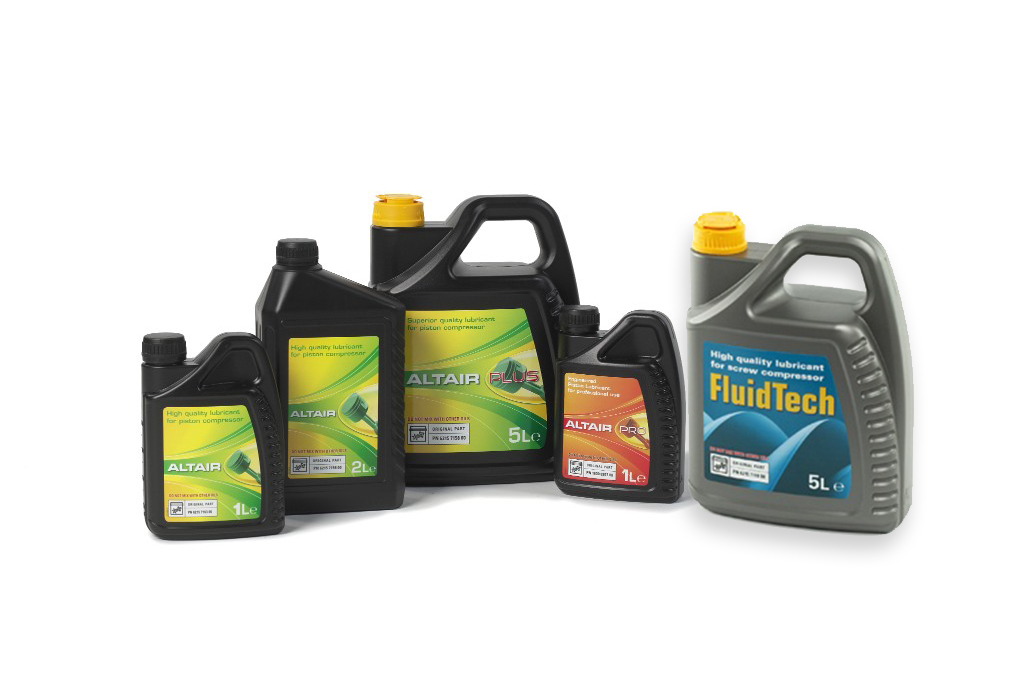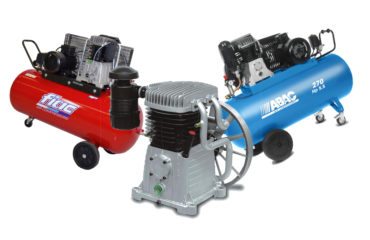When we are faced with the replacement of oil or the purchase of lubricating products for compressors, we always have to consider gradation, viscosity and flow.
It is not uncommon to bump into users who have not replaced their compressor oil for a long time, despite using it often.
Nowadays compressors have a longer operating life, processing times are shorter, so it is necessary to act quickly thanks to timely interventions.
We recommend all users not to avoid changing the oil. Because with high quality oils and lubricants your compressor will be able to guarantee efficient performance. In other words, it is meant to last longer.
Aware of the advantages, it will be easy to predict what risks could arise if you don’t take care of your compressor: reduced performance, premature failure, component wear and corrosion. In addition to the malfunction, the increase in costs is inevitable. Not quantifiable, because the damages could be various.
ABAC and FIAC propose oils and lubricating products for compressors, available in cans and packs depending on the type and quantity. For example the Altair line proposed by ABAC is available in 1l, 2l and 5l bottles.
The correct use of oils and lubricants obviously will depend on the type of compressor in our possession.
For example if you are using a piston compressors, you have to consider the high temperatures up to 200 °C, the oil must be resistant to abrasion and shouldn’t leave residue on the valves.
An excellent resistance to oxidation, on the other hand, should be one of the characteristics of lubricants designed for rotary machines – including screw compressors – with higher efficiency and used for prolonged processing.
In order to purchase the best oil and continue doing maintenance you must consider:
Compressed air is a source of energy, but the compression process is not immune to risks, indeed a compressed air system also produces condensation mixed with oily substances.
Actually the compressor does not compress aseptic and sealed air, but it sucks the air from the surrounding storing and transferring it in another form.
Depending on where the compressor is located there will be more or less residues and traces of dust that obviously don’t dissolve in the air. This dirt could affect the capabilities of essential components such as rotors, crankcases and cylinders.
A high quality oil lubricates the bearings and prevents the rotors from touching one on the other: but this only happens if there also is an adequate filtration, for instance with the aid of original ABAC and FIAC filters. This is the only way to reduce the risk of friction which prevents optimal performance and at the same time accelerates the risks of failure.
Thanks to modern technology we have stainless steel filters that can withstand high temperatures. These features prevent corrosion and breakage, and facilitate an optimal removal of potentially harmful oil residues. Brands such as ABAC and FIAC offer an advanced filtration system also designed for the separation of filtered material.
Whatever the grade of lubricating oils, whatever the use of the compressors, some principles are always valid.
Most common oils:
- Altair oil: For belt compressors and professional use (many working hours)
- Pro: For belt compressors and for hobby use (few working hours).
- FluiTech oil: For screw compressors and for professional use (many working hours)
Liquid contaminants such as oil and water cause the formation of emulsions inside the pipes or layers of rust on the bottom. Over time they can get bigger and affect the functioning of the entire circuit.
If the hot compressed air is introduced into the distribution channel, cooling down along the way, would cause condensation inside the pipes. The water must be eliminated before the air is introduced into the compressor: in addition to dryers, a lubricator can lubricate the compressed air and prevent the oxidation of the internal parts. Air comes out of a compressor so the presence of condensate is not to be supported to avoid water leaking out at the wrong time. It could compromise your work if the compressor is used for very common applications such as painting, sanding, metal filing.
These are simple precautions, habits, essential when the compressor is operational. Useless when, due to wear or neglect, the compressor is no longer in use.
We’ll catch up to the next!
[ps_product_list id_product=220,254,264]


